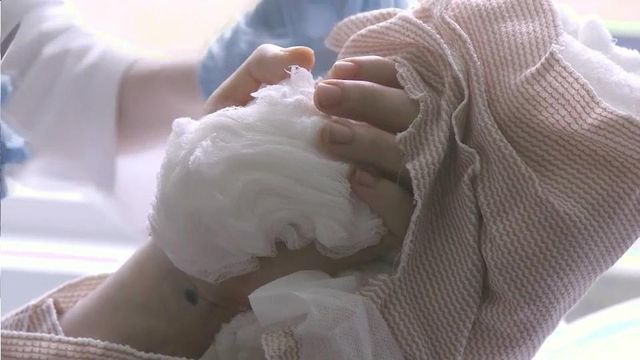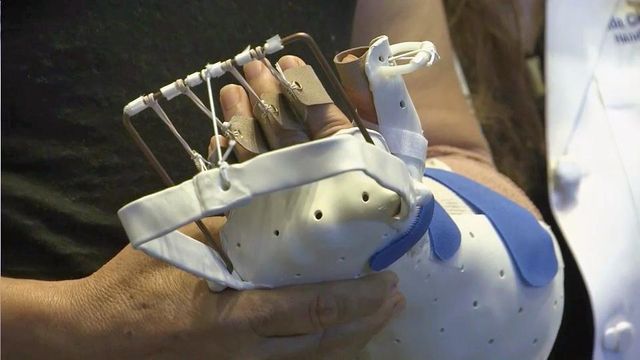Doctors at Duke perform NC's first hand transplant
A Texas man has a new lease on life after doctors at Duke University Hospital made history last month by performing North Carolina's first hand transplant.
Posted — UpdatedRene Chavez, 54, of Laredo, received his new left hand on May 27 during a complex, 12-hour procedure performed by a team of 17 surgeons led by Dr. Linda Cendales, associate professor of surgery at Duke University School of Medicine and director of Duke's hand transplant program.
Chavez, who lost his hand when he was 4 years old in an accident with a meat grinder, came to North Carolina on May 26 after a deceased donor was identified as a hand match. He is one of about 90 people worldwide who have received a hand transplant.
The transplant marks the inauguration of a clinical trial at Duke to determine the safety and efficacy of hand transplantation, and the efficacy of a new anti-rejection drug called belatacept, university officials said.
“This is an exciting time for our patient, his family and Duke,” Cendales said in a statement. “The patient is doing very well and is recovering from his surgery. He is excited about the possibilities that await him as he continues his rehabilitation.”
Cendales said she and Chavez were in contact for three years about the hand transplant.
Chavez said he looks forward to the next few months of rehabilitation, a time when he will relearn things he taught himself to do without his hand.
"I want to take the experience so people can see that you can overcome adversity if you strive for a goal,” Chavez said.
Duke is one of only about 10 hospitals in the U.S. that has performed a hand transplant. The surgery is difficult, involving an intricate process of connecting bone, blood vessels, muscle, nerve, tendons and skin.
"We are actively recruiting and have been recruiting patients and we look forward to offering these options to as many people who have lost one of two hands," Cendales said. "We are open to evaluate and the only thing they need to do is just give us a call and we will be happy to see them and to provide the information."
Matching the limb from a deceased donor is also complex, as is the control of rejection, adding to the rarity of the procedure, the university said.
"Understanding how his brain will re-integrate and become cognizant of his hand will have extraordinary potential to teach us about not only recover from amputation but also recover from stroke or spinal cord injury or traumatic brain injury," said Dr. Allan Kirk, Chair of the Duke University Department of Surgery.
Duke’s hand transplantation program was formed in 2014 after Cendales joined Duke’s Department of Surgery faculty from Emory University, where she served as the director of the Vascularized Composite Allotransplantation program and the Laboratory of Microsurgery.
• Credits
Copyright 2024 by Capitol Broadcasting Company. All rights reserved. This material may not be published, broadcast, rewritten or redistributed.






